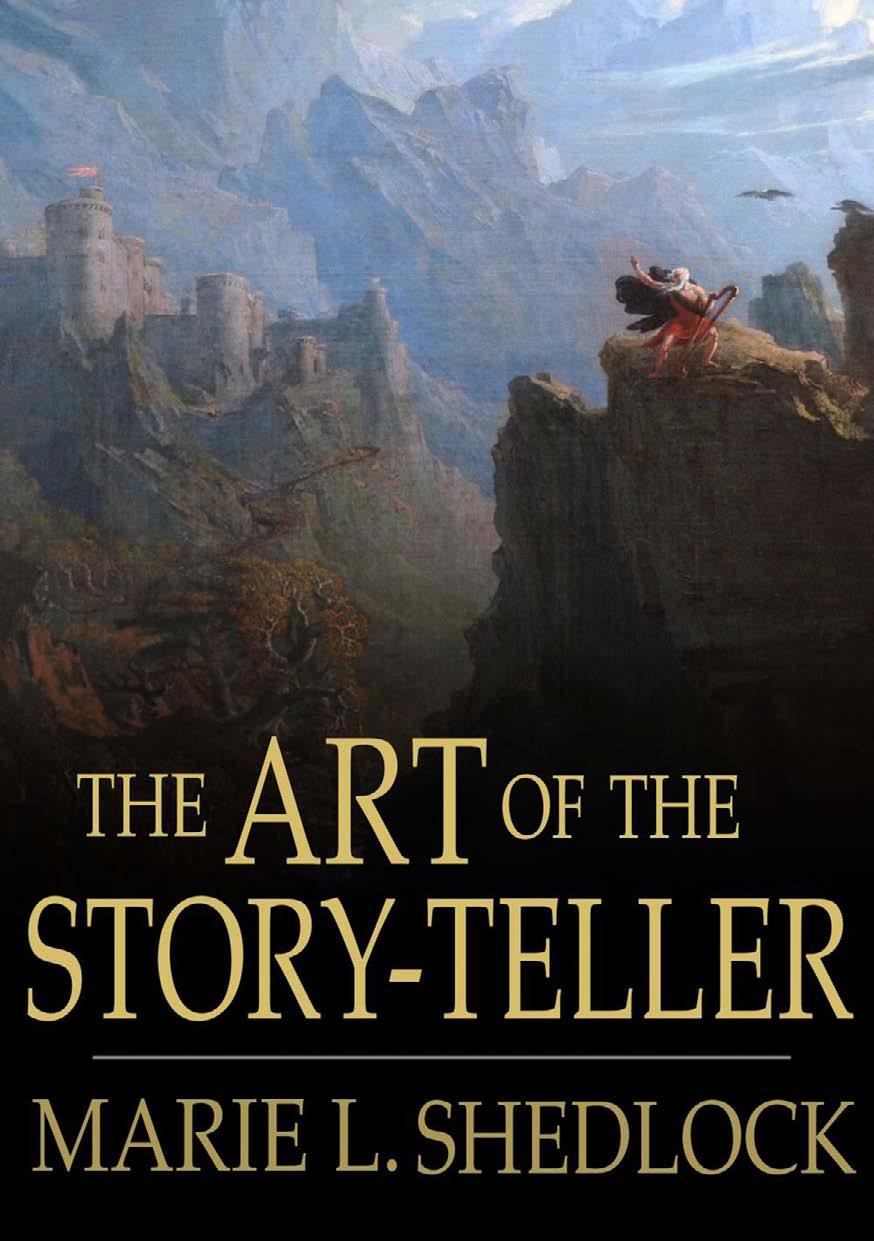The Art of the Story-Teller by Marie L. Shedlock

Author:Marie L. Shedlock
Language: eng
Format: epub, pdf
ISBN: 9781620117361
Publisher: Duke Classics
Chapter VII. Questions Asked by Teachers
*
The following questions have been put to me so often by teachers, in my own country and in America, that I have thought it might be useful to give in my book some of the attempts I have made to answer them; and I wish to record here an expression of gratitude to the teachers who have asked these questions at the close of my lectures. It has enabled me to formulate my views on the subject and to clear up, by means of research and thought, the reason for certain things which I had more or less taken for granted. It has also constantly modified my own point of view, and has prevented me from becoming too dogmatic in dealing with other people's methods.
QUESTION I: Why do I consider it necessary to spend so many years on the art of story-telling, which takes in, after all, such a restricted portion of literature?
Just in the same way that an actor thinks it worth while to go through so many years' training to fit him for the stage, although dramatic literature is also only one branch of general literature. The region of storyland is the legitimate stage for children. They crave drama as we do, and because there are comparatively few good story-tellers, children do not have their dramatic needs satisfied. What is the result? We either take them to dramatic performances for grown-up people, or we have children's theaters where the pieces, charming as they may be, are of necessity deprived of the essential elements which constitute a dramaâor they are shriveled up to suit the capacity of the child. Therefore, it would seem wiser, while the children are quite young, to keep them to the simple presentation of stories, because with their imagination keener at that period, they have the delight of the inner vision and they do not need, as we do, the artificial stimulus provided by the machinery of the stage.
QUESTION II: What is to be done if a child asks you: "Is the story true?"
I hope I shall be considered Utopian in my ideas if a say that it is quite easy, even with small children, to teach them that the seeing of truth is a relative matter which depends on the eyes of the seer. If we were not afraid to tell our children that all through life there are grown-up people who do not see things that others see, their own difficulties would be helped.
In his "Imagination Creatrice," Queyrat says:
"To get down into the recesses of a child's mind, one would have to become even as he is; we are reduced to interpreting that child in the terms of an adult. The children we observe live and grow in a civilized community, and the result of this is that the development of their imagination is rarely free or complete, for as soon as it rises beyond the average level, the rationalistic education of parents and schoolmasters at once endeavors to curb it.
Download
The Art of the Story-Teller by Marie L. Shedlock.pdf
This site does not store any files on its server. We only index and link to content provided by other sites. Please contact the content providers to delete copyright contents if any and email us, we'll remove relevant links or contents immediately.
Call Me by Your Name by André Aciman(18964)
Ready Player One by Cline Ernest(12838)
How to Be a Bawse: A Guide to Conquering Life by Lilly Singh(6693)
Wiseguy by Nicholas Pileggi(4586)
The Kite Runner by Khaled Hosseini(4435)
On Writing A Memoir of the Craft by Stephen King(4213)
The Crown by Robert Lacey(4105)
Audition by Ryu Murakami(4099)
Call me by your name by Andre Aciman(4073)
Harry Potter and the Cursed Child: The Journey by Harry Potter Theatrical Productions(3964)
Gerald's Game by Stephen King(3918)
The Perils of Being Moderately Famous by Soha Ali Khan(3782)
Dialogue by Robert McKee(3582)
Dynamic Alignment Through Imagery by Eric Franklin(3489)
Apollo 8 by Jeffrey Kluger(3200)
How to be Champion: My Autobiography by Sarah Millican(3186)
Seriously... I'm Kidding by Ellen DeGeneres(3100)
Darker by E L James(3088)
History of Dance, 2E by Gayle Kassing(3000)
